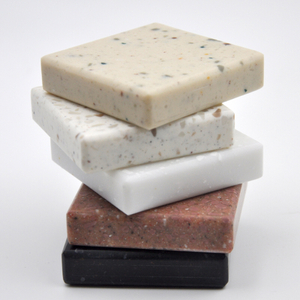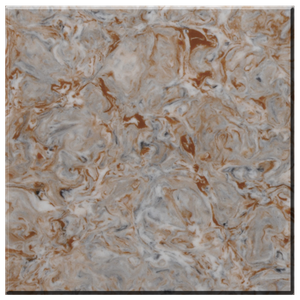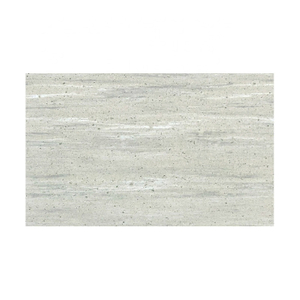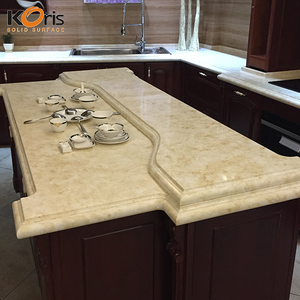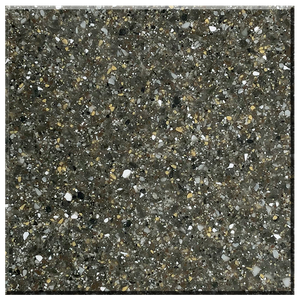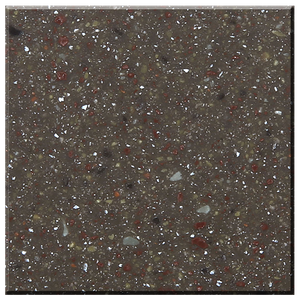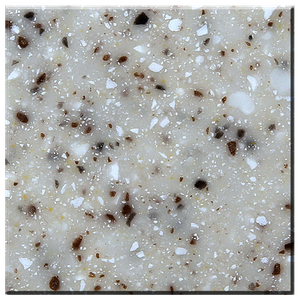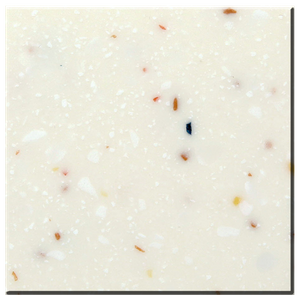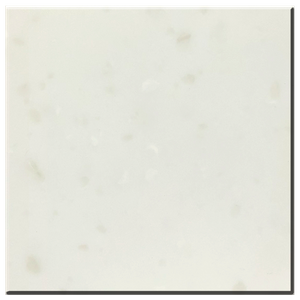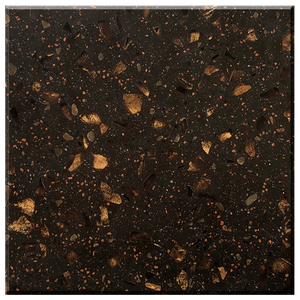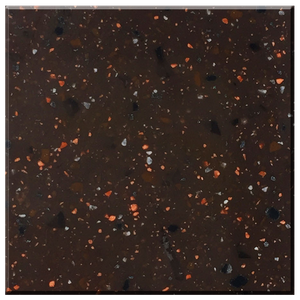When choosing a material for countertops, vanities, or other surfaces in residential or commercial settings, two of the most popular options are solid surface slabs and natural stone. Each material has its own strengths and weaknesses, making the choice dependent on factors like durability, maintenance, aesthetics, and cost. In this article, we will compare these two options in detail to help you make an informed decision.
What is a Solid Surface Slab?
A solid surface slab is a man-made material composed of acrylic, polyester resins, and natural minerals. It was developed as an alternative to natural stone, providing a seamless, non-porous, and customizable surface. Solid surface slabs are widely used in residential kitchens, commercial spaces, healthcare facilities, and hospitality environments due to their versatility and ease of maintenance.
What is Natural Stone?
Natural stone includes materials such as granite, marble, quartzite, and soapstone. These materials are quarried from the earth, cut into slabs, and polished for use in various applications. Natural stone offers a unique, one-of-a-kind appearance, with each slab having distinct veining, color variations, and patterns.

Comparison Between Solid Surface Slabs and Natural Stone
1. Aesthetic Appeal
● Solid Surface Slab:
Available in a wide range of colors, textures, and patterns.
Can mimic the appearance of natural stone, wood, or concrete.
Offers a seamless look with invisible joints, making it an ideal choice for large installations.
● Natural Stone:
Each slab is unique, with variations in veining and patterns.
Natural beauty that adds luxury and elegance to any space.
Requires sealing to maintain its appearance over time.
Winner: If you prefer a uniform look, a solid surface slab is ideal. If you want uniqueness and natural elegance, natural stone is the better choice.
2. Durability and Strength
● Solid Surface Slab:
Resistant to impact, scratches, and minor dents.
Can be easily repaired by sanding or buffing out surface damage.
Not as heat-resistant as natural stone—prolonged exposure to hot pots can cause damage.
● Natural Stone:
Highly durable and resistant to heat.
Some stones (like granite and quartzite) are harder and more scratch-resistant than others (like marble).
Porous in nature, requiring sealing to prevent stains and bacterial growth.
Winner: Natural stone is stronger and more heat-resistant, but solid surface slabs are easier to repair if damaged.
3. Maintenance and Cleaning
● Solid Surface Slab:
Non-porous and resistant to stains, mold, and bacteria.
Requires only mild soap and water for cleaning.
No sealing or special maintenance required.
● Natural Stone:
Porous materials like marble and granite require periodic sealing.
Can stain easily if spills (e.g., wine, coffee) are not wiped up quickly.
Requires pH-neutral cleaners to avoid damaging the stone.
Winner: Solid surface slabs are much easier to maintain, making them ideal for busy households and commercial spaces.
4. Cost Considerations
● Solid Surface Slab:
More affordable than most natural stone options.
Lower long-term maintenance costs due to easy repairs and non-porous properties.
● Natural Stone:
Prices vary significantly depending on the type of stone.
High-end options like marble and quartzite can be very expensive.
Requires ongoing maintenance costs, such as sealing and professional repairs.
Winner: Solid surface slabs are generally more budget-friendly, while natural stone is a premium choice.
5. Environmental Impact
● Solid Surface Slab:
Manufactured using resins and synthetic materials, which may involve chemicals and emissions.
Some brands offer eco-friendly, recyclable options.
● Natural Stone:
Quarrying and transportation have environmental impacts due to energy-intensive processes.
A naturally occurring material with no synthetic additives.
Winner: If sustainability is a priority, some solid surface brands provide eco-friendly options, but natural stone remains the more organic choice.
FAQs: Choosing Between Solid Surface Slab and Natural Stone
Q1: Which material is better for a commercial kitchen?
A solid surface slab is often the preferred choice for commercial kitchens due to its non-porous nature, making it resistant to bacteria and easy to clean. However, if heat resistance is a major concern, some businesses opt for natural stone like granite.
Q2: Can a solid surface slab mimic the look of natural stone?
Yes! Modern solid surface slabs can replicate the appearance of marble, granite, and other stones, providing a natural look without the maintenance challenges.
Q3: Which material is best for a bathroom vanity?
A solid surface slab is a better option for bathroom vanities due to its seamless design, resistance to moisture, and ease of cleaning. Natural stone can work well too, but it requires regular sealing.
Q4: Can solid surface slabs be used for outdoor applications?
Most solid surface slabs are not recommended for outdoor use due to their sensitivity to UV exposure, which can cause fading. Natural stone, particularly granite and quartzite, is a better option for outdoor installations.
Q5: Are solid surface slabs repairable?
Yes, scratches, minor dents, and burns can be easily repaired by sanding and buffing the surface, making it a long-lasting investment.
Final Verdict: Which One Should You Choose?
The decision between a solid surface slab and natural stone depends on your needs and preferences:
● Choose Solid Surface if:
You want a seamless, non-porous surface that’s easy to maintain.
You prefer a uniform look without natural variations.
Cost and ease of repair are important factors.
● Choose Natural Stone if:
You love the unique, natural beauty of quarried materials.
You need a highly heat-resistant and durable surface.
You are willing to invest in periodic maintenance.
Regardless of your choice, both materials offer advantages that cater to different lifestyle needs. Whether you prioritize aesthetics, durability, or budget, selecting the right surface will enhance the functionality and appeal of your space.
Solid Surface Slab
Solid Surface
Acrylic Solid Surface
English
العربية
Français
Русский
Español
Português
Deutsch
italiano
日本語
한국어
Nederlands
Tiếng Việt
ไทย
Polski
ພາສາລາວ
ភាសាខ្មែរ
Bahasa Melayu
ဗမာစာ
Filipino
Bahasa Indonesia
magyar
Română
Čeština
Монгол
қазақ
Српски
فارسی
Kiswahili
Slovenčina
Slovenščina
Norsk
Svenska
українська
Ελληνικά
Suomi
Հայերեն
עברית
Dansk
Shqip
Hrvatski
Gaeilge
Eesti keel
latviešu
Azərbaycan dili
Беларуская мова
Български
ქართული
ʻŌlelo Hawaiʻi
Wikang Tagalog












